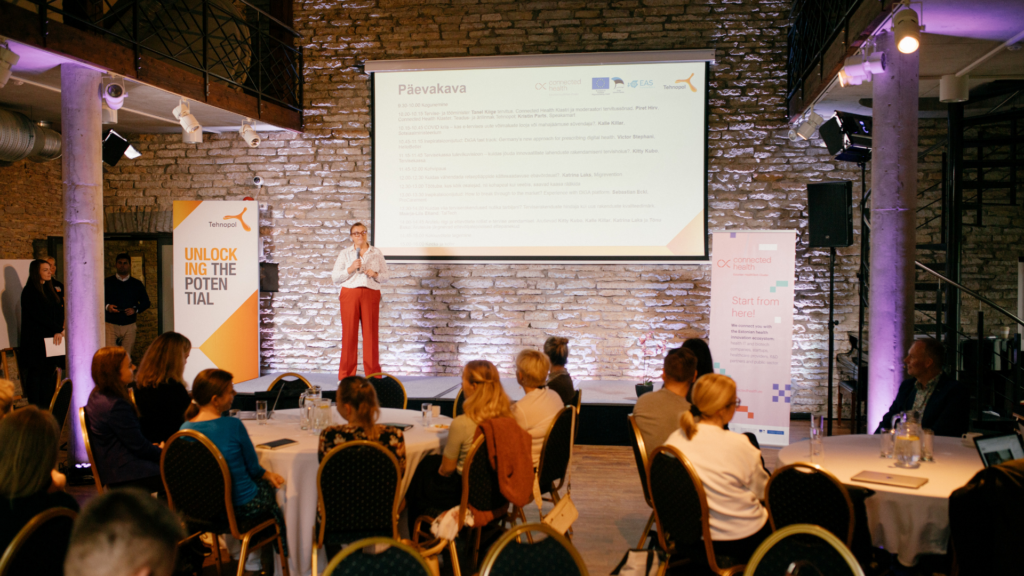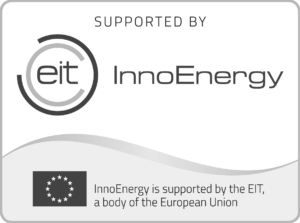27.09.2021
Estonian e-health eagerly awaits new innovative solutions

At the start of September, healthcare innovation leaders and experts came together for a brainstorming session known as Kärajad to discuss the outlook of Estonian e-health for the next ten years, how to move forwards with e-health in a way that involves all parties and what role the public and private sectors play in all of this.
Minister of Health and Labour Tanel Kiik said in his opening speech that it is important to continue developing e-health solutions and improving existing solutions. There is still much to do and many challenges ahead of us, but Estonia has some good digital solutions to show, such as the introduction of digital prescriptions, the e-ambulance and the nationwide digital registration system. “The COVID-19 crisis showed us that many of the solutions we once considered complicated or impossible were put into use in Estonia as well as throughout the EU,” said Tanel Kiik, adding that instead of being temporary, the solutions created during the crisis should reflect a new era in the development of e-health in the EU.
Deputy Secretary General of E-services Development and Innovation Kalle Killar of the Ministry of Social Affairs sees the COVID crisis first and foremost as an opportunity. “Looking at the next ten years, we have reached an important milestone to take us to a new level both in terms of how we think and developmentally.” According to Killar, the state should not do everything by itself without help. Instead, it should look more to the private sector. Killar says that several good examples of effective solutions have been born out of cooperation between the public and the private sector.
Victor Stephani, creator and manager of startup HelloBetter, gave an overview of how Germany has implemented changes in digital health and introduced digital health applications. Sebastian Eckl, founder and manager of ProCarement, also spoke about how to enter the German market with innovative solutions. Even though last year Germany passed a law that was unofficially described as a “highway for digital applications”, in reality, there have been no quick developments because bureaucracy and other affairs have proven more complex than initially expected.
Innovation Manager of the Estonian Health Insurance Fund Kitty Kubo talked about how to get to the implementation stage of innovative solutions in health care. She admitted that users need a lot of help with their digital abilities – patients are not equally well versed when it comes to using smart tech. According to Kitty Kubo, this will continue to be an issue for at least ten more years. “Sometimes we are even unable to test applications because the target group has no access to digital tools,” said Kubo. When discussing unmet needs, Kubo highlighted that the market is currently missing video platforms for remote appointments and therapies, solutions to collect feedback from patients as well as their assessments on health results and service experience and solutions for coordinating various treatment routes.
Katrina Laks, creator of headache clinic Migrevention, represented the viewpoint of the private sector and admitted that the situation today is far from beneficial for innovation and needs improvement. She also brought out that novel solutions should be created in partnership with patients and specialists. “If you’re not working with the end user to create your solution, no one will use it,” says Laks.
E-health analyst of TalTec’s eMed Lab Maarja-Liis Elland introduced the health application assessor developed by TalTech. This solution enables the assessment of health applications based on specific criteria. The solution is still under development and being tested. Hopefully, it will become something of a seal of excellence for various health applications.
Tõnu Esko, Vice Director of the University of Tartu Institute of Genomics and Director of the Estonian Biobank Innovation Centre, said that it is important to remember science when talking about those responsible for developing e-health. In his vision, it all comes together in a kind of holy trinity: scientists come up with innovative solutions, which are then taken to the people with help from undertakings and the state. According to Tõnu Esko, the University of Tartu has developed a data accelerator where companies can propose ideas and if an idea proves competent, the company will be granted access to data to test and develop products and services. There are also plans to launch the My Genome Project portal this autumn.
The brainstorming sessions Kärajad are organised by the Connected Health Cluster. The activities of the cluster are co-financed by Enterprise Estonia.












